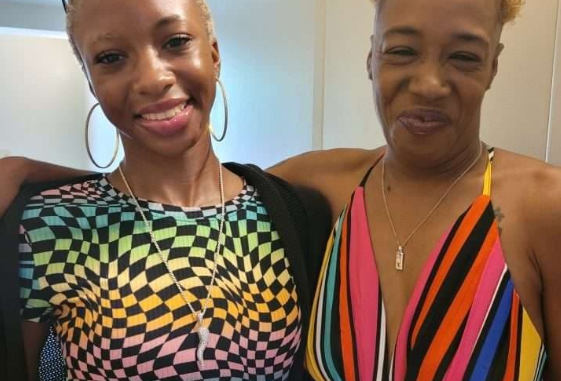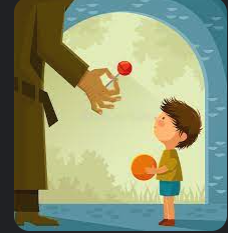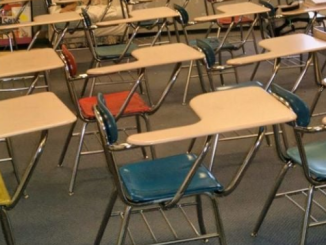
The troubled Massachusetts high school where parents and community members wanted the National Guard to help restore order was labeled “exemplary” by a Harvard University study just 15 years ago — but now families are fleeing in droves.
Parents are opting to home school their kids or are moving to another district, rather than let their children face the violence plaguing the campus.
Brockton High School was profiled in “How High Schools Become Exemplary,” a 2009 study which examined how teachers banded together in their own free time to reshape the curriculum and turn things around at the school 25 miles south of Boston.
{snip}
By the end of the process, Brockton went from a school where the unofficial motto was “students have a right to fail if they want,” to one of the highest performing public schools in the country, according to a 2010 New York Times profile.
“We used to have a timeframe where people were traveling from across the world to come and observe how we manage a large school as well as we do, and produce the educational results that we do,” Cliff Canavan, a Brockton math teacher of 22 years, told The Post. “Things have changed.”
The school’s superintendent said the pandemic hit Brockton families hard, but blamed a Massachusetts law that prevents administrators from suspending students from class for the breakdown in discipline.
The situation at Brockton High, which has a study body of 3,600, was already deteriorating four years ago when Kyanna Washington’s daughter Kalani was preparing to go there.
So instead of sending her into the fray, she pulled her daughter out of the public school system and has been educating her herself.
{snip}
“She knows kids that go there. She has her best friend goes there. And the child is scared. She’s just hoping to get through school every day,” she added.
The Washington family is one of many. Brockton has lost nearly 500 students since 2020, a decline in enrollment of about 12%, according to Massachusetts Department of Education data. Enrollment at public schools across the commonwealth has dropped a much smaller 3.5%.
The number of black students at the school is down 15%, while the white student population is down nearly one-third. The number of Hispanic students, meanwhile, is up 20%.
Canavan, whose arm was broken while breaking up a violent fight between two students, has seen that attrition playing out in real time.
“I’ve been coaching cross country girls for 20 years, and the cross country team usually has some of the highest academic performing students. For the last three seasons in a row I’ve lost half of my varsity athletes to other districts because the parents move the kids.”
{snip}
“It’s hard being in school and wanting to learn and see your friends, when there’s so much drama, so much violence and negativity, even outside of the violence, things like the drugs.”
Even though she isn’t at Brockton High School, Kalani called it “nerve wracking, very anxiety inducing” to hear her friends who go there talk about what they see in the halls.
“Premeditated fights,” plotted over social media by beefing students, have resulted in organized “fight clubs” where students brawl on and off campus, she said.
Last year a student was stabbed outside the school, Kalani said. And friends told her blood leftover from fights sometimes remains dried on hallway floors for weeks.
“They’re worried about their safety, people bringing weapons into school,” she said.
Brockton Schools Superintendent Mike Thomas, who has been on leave this school year following a medical issue, believes the current situation was brought on by a conflation of factors exacerbated by the COVID pandemic and its affect on Brockton’s lower-income families.
{snip}
About 70% come from low income families.
“As we came back to in person across the country I don’t think anybody realized the toll that pandemic took especially, on kids,” he said.
“I think that’s a direct correlation to what’s happening now.”
But Thomas, who was present throughout the turnaround process featured in the 2009 study, believes the genesis of the current behavior issues began before the pandemic with the passage of Massachusetts’ Chapter 222 student disciplinary law in 2012.
The law was intended to make suspension a last resort for student punishments — but teachers have complained it left them helpless to enforce discipline and that no additional funding was provided to help teachers deal with troublemaking students.
“The state put this law in, but it never came with any funding,” Thomas said.
He added that Chapter 222 only made sense if it came with money for alternative academic programs for troublemaking students “so you get to the root of why they’re behaving like they’re behaving.”
“I don’t think throwing kids out of school solves the problem, but there’s got to be consequences,” Thomas said.
“People have to be held accountable and there’s got to be programs … but again, those things cost money.”
Brockton’s discipline problem gained national attention this year when the Brockton School Committee asked Massachusetts Gov. Maura Healey to send in the National Guard to ramp up security and supplement staff in February.
Healy’s office denied the request, and instead ordered a state-funded “safety audit” to study the problems at the school.
{snip}
Illicit drug use among students has also been reported, as has sex in empty stairwells and classrooms, and off-campus brawls to settle schoolyard scores.
“The challenges Brockton High School is facing are nuanced and complex, and the school is moving day by day toward improving its culture,” Brockton public schools said in a statement. “An essential part of meeting our goals — which have no true ‘finish line’ but rather are an ongoing and everlasting effort — is having stable leadership.”
Despite the problems facing Brockton, Thomas, Canavan, and others, repeatedly praised the efforts of the great majority of their students and the dedication of the school’s staff.
Earlier in March, Brockton students took first and second place over a field of national competitors at the Global Economic Symposium held at Northeastern University. Later this month, the school’s drama club will be competing with finalists from a pool of 100 schools in the state’s Educational Theatre Guild high school festival. Eleven students were recently recognized by the Scholastic Art Awards.
Still, those achievements aren’t changing minds in the Washington household. Kalani has a little sister about to enter middle school, and their mother — and many of her friends with kids around the same age — is already looking at alternatives to Brockton High School.
“My neighbors — they don’t feel they want their children to go there,” Kyanna said. “They don’t want their children getting into the things at the high school.”
(*) www.WhitePrideHomeSchool.com
* Original Article:
https://nypost.com/2024/03/17/us-news/troubled-brockton-high-school-was-once-labeled-exemplary/amp/


